Celebrating trailblazers in higher education: EAB Strategic Advisory Services announces our inaugural award winners
Higher education is at its best when leaders and institutions are willing to challenge the status quo, take bold risks, and put students at the center of transformation. With this belief, EAB Strategic Advisory Services launched two new awards to celebrate the people and campuses who are showing us what’s possible when innovation, collaboration, and perseverance come together.
Two categories honor this year’s trailblazers:
-
Change Maker Award
Recognizing bold leaders who inspire progress and spark transformative change on their campuses and beyond
-
Innovative Institution Award
Celebrating colleges and universities that embrace experimentation, collaboration, and bold ideas to solve today’s challenges and prepare for tomorrow
We are thrilled to introduce our 2025 award winners.
Change Maker Award Winners
 Rick Muma, Ph.D.
Rick Muma, Ph.D.
President, Wichita State University
Transforming healthcare education at Wichita
President Muma is leading a once-in-a-generation transformation in healthcare education with the creation of the Wichita Biomedical Campus, a $300 million collaboration with the University of Kansas. Recognizing urgent provider shortages across Kansas, especially in rural areas, he moved swiftly to unite universities, health systems, city and state leaders, and private partners around a shared vision.
This bold initiative:
- Expands access to healthcare education and training
- Strengthens capacity for research and innovation
- Positions Wichita as a hub for advancing clinical outcomes across the state and region
Wichita State’s approach to aligning mission with public impact has been profiled in EAB’s report, A Modern Anchor Institution in Action. The Wichita Biomedical Campus builds on this legacy, showing how President Muma’s leadership is advancing both institutional strategy and community well-being. His ability to turn an urgent challenge into a shared, future-focused solution exemplifies the spirit of the Change Maker Award.
 Susana Rivera-Mills, Ph.D.
Susana Rivera-Mills, Ph.D.
President, Aurora University
Creating a bold strategic plan at Aurora
Since becoming the president of Aurora University (AU) in 2023, Dr. Rivera-Mills has set a bold course defined by collaboration and inclusivity. She led the creation of AUnity: Fulfilling Our Promise, a five-year strategic plan that meets AU’s mission while prioritizing innovation, access, career readiness, and global engagement.
Her leadership has already yielded transformative results:
- Expanded hybrid and lifelong learning opportunities for working students
- Integrated career readiness through the Skills Infusion Program and a new President’s Advisory Council of industry leaders
- Introduced AI, VR, and AR in disciplines ranging from healthcare to literacy
- Strengthened global and civic engagement through new partnerships and international experiences
With AU now enrolling its largest undergraduate class in history, Dr. Rivera-Mills’ vision is positioning the university—and its students—to thrive in a rapidly evolving world.
Innovative Institution Award Winners
Johnston Community College
About the institution
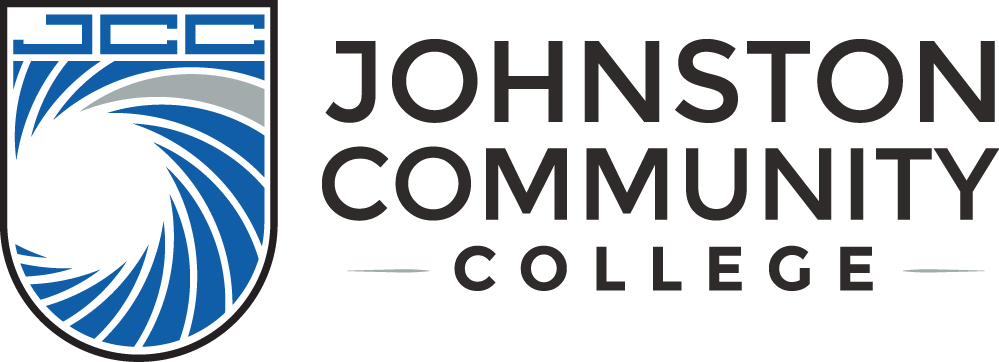
Johnston Community College (JCC) is a public community college located in Smithfield, North Carolina, serving more than 6,500 students as of Fall 2025. The college plays a vital role in the region’s workforce development, offering academic transfer programs, technical training, and continuing education to meet community and employer needs.
The challenge
By 2023, JCC faced enrollment stagnation and retention challenges. The college lacked an updated strategic enrollment management (SEM) plan, and siloed operations across admissions, financial aid, and student services created barriers for students navigating enrollment and accessing resources. Building trust within the institution and regaining momentum became urgent priorities.
The solution
JCC launched a bold, institution-wide transformation. Institution leaders developed a new SEM plan, adopted an AI-powered CRM, and built a data warehouse to support early interventions and evidence-based decisions. The college restructured key departments to streamline student services and established dedicated retention teams.
JCC also expanded workforce training with a state-of-the-art Advanced Manufacturing Center, reduced costs through day-one textbook access (the first model in North Carolina community colleges), and implemented a multi-year academic calendar with planned eight-week terms.
Why it’s innovative
JCC’s approach went beyond operational fixes to embed a new culture of collaboration, transparency, and accountability. Through its “Data Bites” series, JCC engages faculty and staff in data-driven conversations that support a culture of continuous improvement. This comprehensive strategy made innovation a shared responsibility across the college.
Impact and results
- Enrollment has grown nearly 60% since 2021, reaching 6,513 students in Fall 2025
- Stop-out students re-engaged at record levels, up 17% between Fall 2023–24 and 24% between Fall 2024–25
- Targeted re-engagement campaigns brought back ~120 students in Fall 2025, generating ~$400,000 in state funding
- JCC ranked among state leaders in first-year progression (75.7%)
- Sustained six consecutive semesters of double-digit enrollment growth
JCC demonstrates that comprehensive, technology-enabled reform can fuel both cultural and enrollment transformation. This model has already inspired replication, showing how community colleges can turn periods of instability into opportunities for innovation and long-term growth.
Learn more about how EAB supports community colleges with enrollment growth and strategic planning tools.
Stony Brook University
About the institution
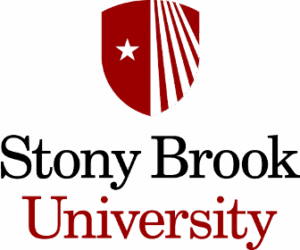
Stony Brook University, part of the State University of New York (SUNY) system, is a leading public research university on Long Island, serving more than 26,000 students. Known for academic rigor and research excellence, Stony Brook has maintained a strong first-year to sophomore retention rate of 90% while striving to push persistence rates even higher.
The challenge
Like many selective institutions, Stony Brook observed that students on academic probation often became discouraged, isolated, and at risk of attrition. Traditional probation frameworks emphasized compliance over support, leaving students with limited pathways to recovery. The university sought to reimagine probation as an opportunity for growth rather than a barrier to success.
The innovation
The Sophomore Academic Resilience Program (SARP) reframes probation as recovery. For students with GPAs below 2.0, SARP offers a fully funded, immersive summer program that costs the university ~$5,700 per student. The program provides:
- Enrollment in credit-bearing courses to raise GPAs and maintain momentum
- A success seminar (ADV 202) focused on resilience, time management, and self-reflection
- Skill-building workshops in study strategies, communication, and stress management
- A peer cohort model to build belonging and accountability
- Paid on-campus jobs that combine financial support with professional experience
Why it’s innovative
SARP eliminates both the stigma and financial barriers associated with probation. It reframes a challenging moment in a student’s academic career into an opportunity and integrates support from advising, residence life, tutoring, financial aid, and career services into a single, cohesive program. The model ensures students gain academic momentum, personal confidence, and a strong support community all at once.
Impact and results
- In its first two cohorts (30 students each in 2024 and 2025), every student improved their GPA, rising from 1.77 to 3.57 during the summer
- 100% of the first cohort persisted to the next fall, compared to 73% of their peers
- 90% of participants regained good standing within one semester
- Students reported greater academic confidence, while faculty observed improved persistence and self-advocacy
SARP demonstrates that probation can be transformed into a launchpad for resilience. Stony Brook has created a scalable model for equity-driven retention that challenges long-standing assumptions about academic recovery.
EAB’s Student Completion Policy Diagnostic helps institutions identify and reform probation and progression policies that can create barriers to persistence.
University of Central Florida
About the institution
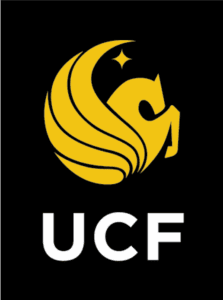
The University of Central Florida (UCF), located in Orlando, is one of the nation’s largest universities, serving more than 68,000 students. With strong roots in innovation, UCF is a driver of economic growth in Florida, linking higher education to workforce readiness, research, and industry partnerships.
The challenge
Despite its scale and influence, UCF’s corporate partnerships were historically fragmented, often transactional, and not aligned with areas of focus. With no clear framework, companies lacked a single point of entry, and faculty/staff incentives often worked at cross purposes. The result was inefficiency, inconsistency, and under-leveraged opportunities.
The solution
In 2024, UCF launched a centralized Partnerships team within the Division of Advancement and Partnerships with full strategic support from President Cartwright. Acting as a “front door” for companies, the team provides streamlined entry and builds long-term, five-year frameworks for collaboration. This enterprise-wide model integrates talent development, research, student success, the academy, philanthropy, and business engagement to deliver shared value.
Why it’s innovative
UCF replaced disjointed, short-term relationships with a holistic system for engagement. The Pegasus Partnership program, for example, ensures commitments include both research and philanthropy. By embedding industry partnerships into institutional strategy, UCF positioned itself as a proactive partner in solving societal and workforce challenges.
Impact and results
- Secured $33M+ in partnership investment in its first year
- Expanded collaborations with Siemens Energy and Lockheed Martin in clean energy, defense, and workforce development
- Showcased UCF globally through its first-ever presence at the Paris Air Show
- Signed a $5M+ Pegasus Partnership with Siemens Energy (90% research, 10% student support), replacing a patchwork of short-term grants
By reframing partnerships as enterprise-wide collaborations, UCF has built a replicable model that is already influencing peers. Its integrated approach shows how academia and industry can co-create impact, positioning UCF—and higher education more broadly—as indispensable engines of innovation and economic growth.
Learn more about how universities can maximize corporate engagement in EAB’s report For the Greater Good: Boosting the Value of Industry Partnerships.
Honoring higher education’s trailblazers
This year’s awardees—two bold leaders and three innovative institutions—are united by a shared conviction: higher education must evolve to meet the needs of students, communities, and the world.
Whether by reimagining academic recovery, building transformative partnerships, or embracing institutional culture change, these trailblazers are proving that bold action can redefine what’s possible in higher education.
Congratulations to the inaugural 2025 award winners. Their work inspires us all to think bigger, act bolder, and keep student success at the heart of everything we do.
More Blogs

How to set your university’s executive transition up for success

Inside the spring 2025 fellowship: How higher ed’s future leaders are driving change

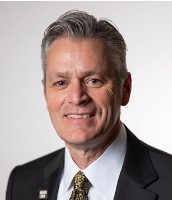 Rick Muma, Ph.D.
Rick Muma, Ph.D.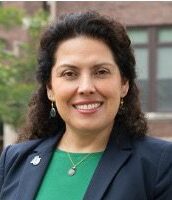 Susana Rivera-Mills, Ph.D.
Susana Rivera-Mills, Ph.D.